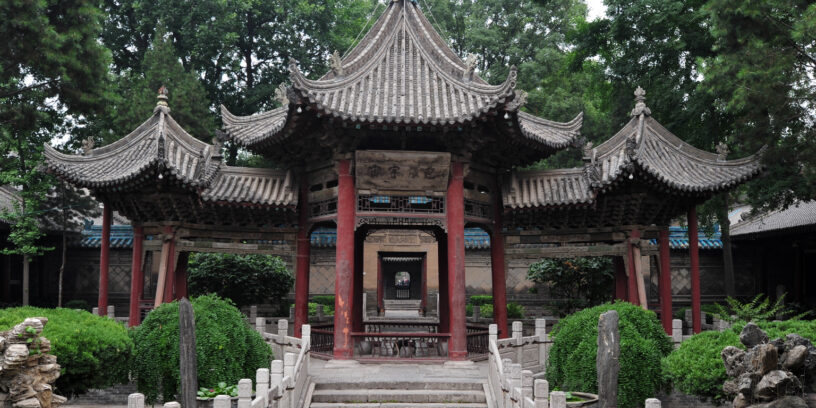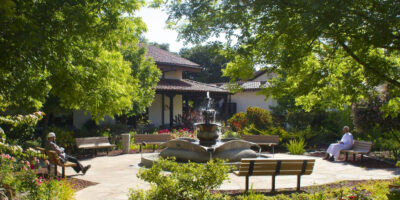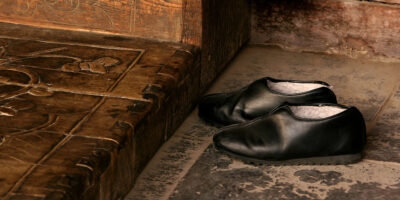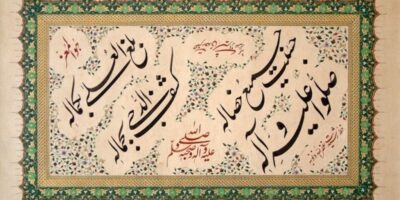Bǎi Zì Zàn (百字讃), the “Hundred Words of Praise” (or “Hundred-Word Eulogy”), is a medieval Chinese poem in praise of the Prophet ﷺ, written by Hóngwǔ (r. 1368–1398), the first emperor of the Ming dynasty. Emperor Hóngwǔ, whose personal name was Zhū Yuánzhāng, is held to have ushered in the “golden age” of Islam in China, commissioning mosques in the major cities of his empire. Several of his top officials and family members were Muslim, and some have speculated that the emperor himself also followed the teachings of Islam. The poem is composed of exactly one hundred Chinese characters/syllables, hence its name. The Bǎi Zì Zàn can be found engraved on stone stelae in many traditional Chinese mosques, some of which were erected by Hóngwǔ himself. The translation and transliteration offered below are from this insightful study by Brendan Newlon.
Lyrics
– line 1 –
乾坤初始 天籍注名
Gān kūn chū shǐ / tiān jí zhù míng
The universe began with the heavenly tablet recording his name.
– line 2 –
傳教大聖 降生西域
Chuán jiào dà shèng / jiàng shēng xī yù
The religion-delivering great sage, born in the western realm.
Audio Samples
Read by Jenny Zhao
Read by Iskander Zhao (from 2:20)
Share
Do you have any suggestions or corrections regarding the lyrics, description or categories for this hymn? Or would you like to share a reflection?
Feel free to comment below.








Leave a Reply